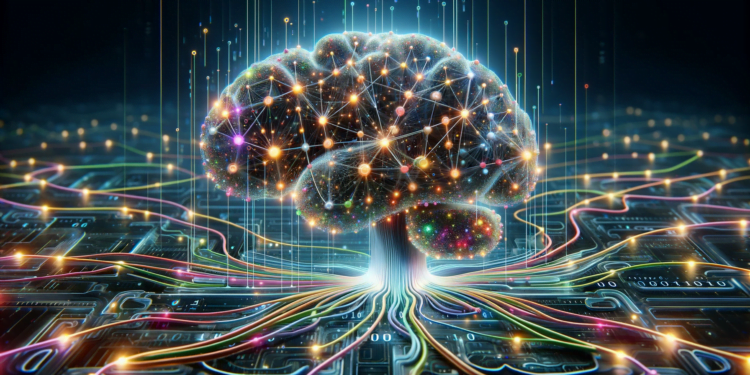Artificial intelligence (AI) has taken a leading role in the contemporary technological world, reshaping industries and opening doors to previously unimaginable possibilities. This article delves into one of the most dynamic and fundamental concepts in advanced AI: recurrent neural networks (RNNs). Through detailed analysis, we will address the principles that underpin them, recent advances in algorithms, and emerging practical applications, offering a comprehensive and specialized technical insight.
Fundamentals of Recurrent Neural Networks (RNNs)
Recurrent neural networks are a class of artificial neural networks where the connections between nodes form a sequence characterized by containing loops. This design allows them to process data sequences such as time series or linguistic sequences, making them potentially powerful for tasks such as speech recognition, machine translation, and text generation.
The core of an RNN lies in its ability to maintain an internal state or memory that captures information about the inputs it has processed, allowing the influence of a previous input to persist in the current calculation, often via hidden state vectors.
Recent Advances in Algorithms
Long Short-Term Memory (LSTM)
A significant innovation within RNNs has been the introduction of LSTM cells, which address the problem of vanishing gradients, allowing the network to retain information for longer periods. LSTMs achieve this through forget and update gates that regulate the flow of information, making the networks more robust and capable of learning long-term dependencies.
Gated Recurrent Units (GRU)
GRUs are simplified variants of LSTMs that merge forget and update gates into a single structure, making the network more efficient in terms of computation and memory. Although GRUs are more recent, they have proven to be very effective in a variety of sequence problems.
Emerging Practical Applications
RNNs have found applications in many emerging fields. In natural language processing (NLP), they allow machine translation and text generation models to effectively capture linguistic context. In finance, they are used to model and predict stock market time series. In biomedicine, they aid in the analysis of genomic signals and the creation of diagnostic models.
Comparatives and Previous Work
Comparatively, RNNs have shown to possess significant advantages over traditional neural networks (feedforward) for certain tasks. For example, when dealing with text sequences, RNNs avoid the need to predefine a temporal window as was done in earlier models, resulting in a more efficient capture of linguistic structure.
Projection of Future Directions and Innovations
Looking to the future, RNNs are evolving thanks to advances in representation learning and deep learning. Research is directed towards developing architectures and algorithms that improve the network’s ability to learn abstract data representations at different hierarchy levels.
One area of development is meta-learning, where networks learn to learn, optimizing their structure and internal algorithms. Another promising direction is the fusion of RNNs with attention networks to improve sequence processing by focusing computational resources on relevant parts of the data.
Case Studies
A relevant case study is the development of personalized recommendation systems through RNNs. By analyzing sequences of user interactions, these networks make it possible to predict their short and long-term interests, resulting in more accurate and timely recommendations.
Another case of interest is the use of RNNs in advancements in autonomous vehicles, where they are employed to predict the sequence of movements of other vehicles and pedestrians, improving safety and efficiency in decision making.
Conclusions
Recurrent neural networks have opened a path toward understanding and modeling sequential data that is transforming our ability to handle complex tasks in various domains. As the complexity of data grows, the relevance of RNNs in research and industry strengthens, posing a future where their application will become increasingly omnipresent and strategically vital in advanced AI. With changes in architecture and algorithms on the horizon, RNNs represent an area of research and development in constant evolution and with extraordinary potential to generate revolutionary innovations.
The rigorous technical presentation addressed here aims to provide a deep yet accessible understanding for professionals and academics interested in the latest trends in AI, and specifically in the study and application of recurrent neural networks. This kind of technical reflection ensures that the reader is not only informed but also inspired to tackle and contribute to the emerging challenges in the field.






















